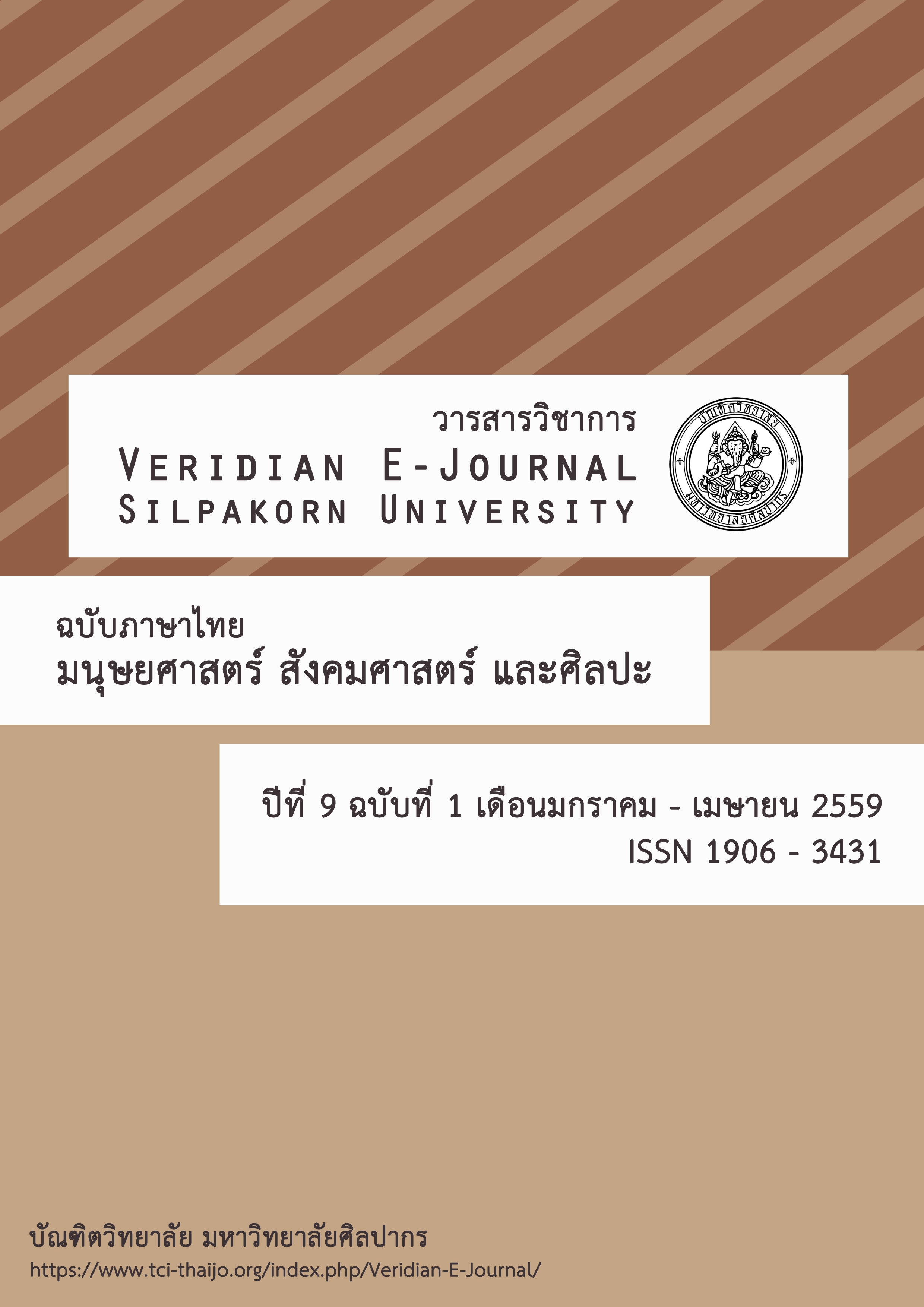ประสิทธิผลของโปรแกรมสร้างเสริมสุขภาวะองค์รวมแนวพุทธ สำหรับนักเรียนชั้นประถมศึกษาปีที่ 5-6 ที่มีภาวะอ้วน
Main Article Content
Abstract
บทคัดย่อ
การวิจัยนี้มีวัตถุประสงค์เพื่อประเมินประสิทธิผลของโปรแกรมสร้างเสริมสุขภาวะองค์รวมแนวพุทธโดยใช้กรอบเนื้อหาตามแนวคิดสุขภาวะองค์รวมแนวพุทธของพระพรหมคุณาภรณ์ (ป.อ. ปยุตฺโต) และหลักการภาวนา 4 เป็นกรอบในการประเมิน เป็นการวิจัยกึ่งทดลองในกลุ่มนักเรียนชั้นประถมศึกษาปีที่ 5-6 ที่มีภาวะอ้วน เมื่อเปรียบเทียบค่าน้ำหนักตามเกณฑ์ส่วนสูงตั้งแต่ +3 S.D. ขึ้นไป จำนวน 30 คน ดำเนินการวิจัยโดยใช้แบบแผนการทดลองแบบศึกษากลุ่มเดียวทดสอบก่อนและหลังทดลอง (The One-group Pretest-Posttest Design) ทำการเปรียบเทียบความรู้เรื่องโภชนาการและการแก้ไขภาวะอ้วน องค์ประกอบด้านกาย สมรรถภาพทางกายที่สัมพันธ์กับสุขภาพ สุขภาวะองค์รวมแนวพุทธด้านกาย จิต สังคม และปัญญา ก่อนและหลังการทดลอง โดยใช้เครื่องมือที่ผู้วิจัยสร้างขึ้นและประเมินคุณภาพโดยผู้เชี่ยวชาญ คือ โปรแกรมสร้างเสริมสุขภาวะองค์รวมแนวพุทธ ซึ่งประกอบด้วยกิจกรรมโดยใช้กระบวนการกลุ่มและกิจกรรมออกกำลังกายแบบวงจร 32 ครั้ง เป็นเวลา 16 สัปดาห์ แบบทดสอบความรู้เรื่องโภชนาการและการแก้ไขภาวะอ้วน และแบบประเมินสุขภาวะองค์รวมแนวพุทธ วิเคราะห์ข้อมูลด้วยค่าความถี่ ร้อยละ ค่าเฉลี่ย ส่วนเบี่ยงเบนมาตรฐาน และสถิติทดสอบค่าทีแบบ paired samples t-testผลการวิจัยพบพัฒนาการที่ดีขึ้นอย่างมีนัยสำคัญทางสถิติที่ระดับ .01 ในด้านความรู้เรื่องโภชนาการและการแก้ไขภาวะอ้วน องค์ประกอบด้านกายคือน้ำหนักและเส้นรอบวงเอว สมรรถภาพทางกายที่สัมพันธ์กับสุขภาพ 5 รายการ ได้แก่ ค่าดัชนีมวลกาย นั่งงอตัว ลุกนั่ง ดันพื้นและวิ่ง 1,200 เมตร และระดับสุขภาวะองค์รวมแนวพุทธด้านกาย จิต สังคม และปัญญา
Abstract
The purpose of this research aimed to assess the effectiveness of a Buddhist Holistic Well-being Promotion Program based on the Buddhist holistic well-being concept of Phra Brahmagunabhorn (P.A. Payutto) and Bhavana 4. The quasi-experiment used was one-group pretest-posttest design. Thirty schoolchildren studying in Grades 5-6 were selected on the criteria of weight in relation to height over +3 S.D. as Thailand standard. Comparisons before and after joining the program of the followings were made. These were knowledge of nutrition and weight management, body composition, physical fitness, the Buddhist holistic well-being in 4 aspects, namely, physical, emotional, social and cognitive. The instruments used for evaluation and data collection developed by the researcher with expert consultation were a Buddhist holistic well-being promotion program, the test of knowledge about nutrition and weight management, and the Buddhist holistic well-being measuring instrument. Descriptive statistics and paired sample t-test were analyzed. It was found that after joining the program, highly significant development was evident (p <.01) in knowledge of nutrition and weight management, body composition (body weight and waist circumference), physical fitness (BMI, sit and reach, sit up, push up, and 1,200-meter run), and all aspects of the Buddhist holistic well-being (physical, emotional, social and cognitive).
